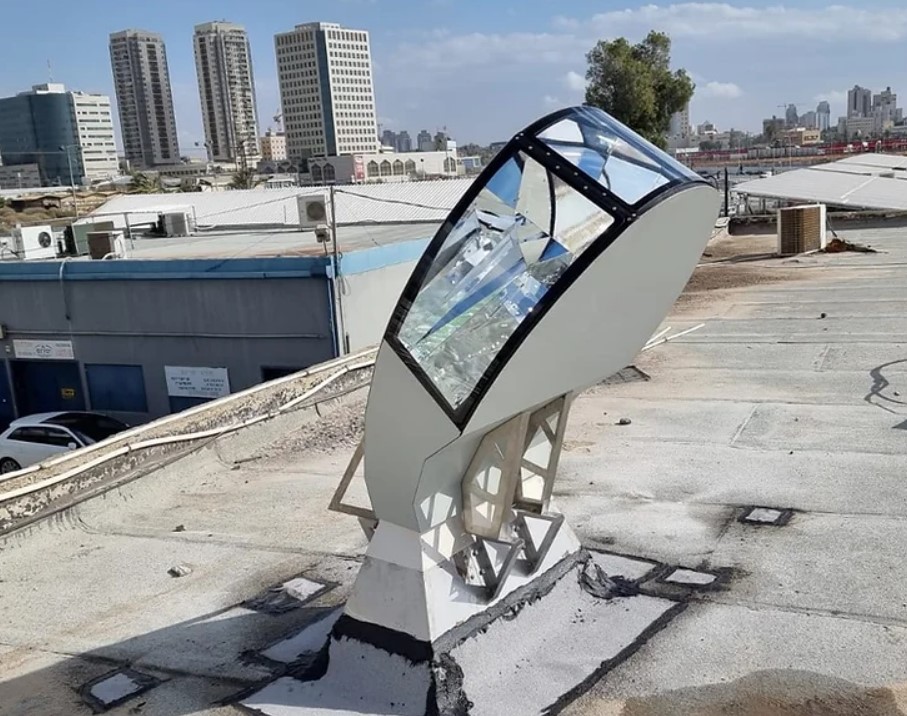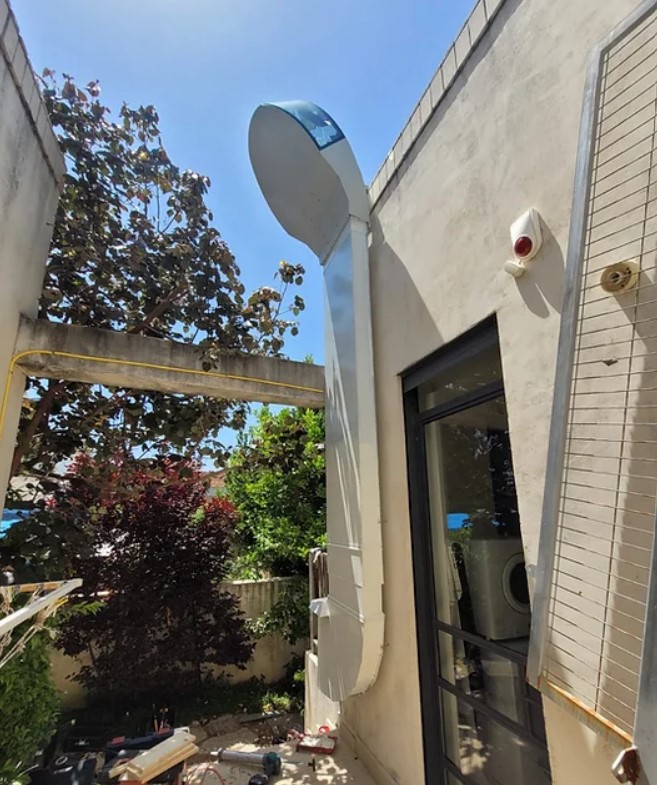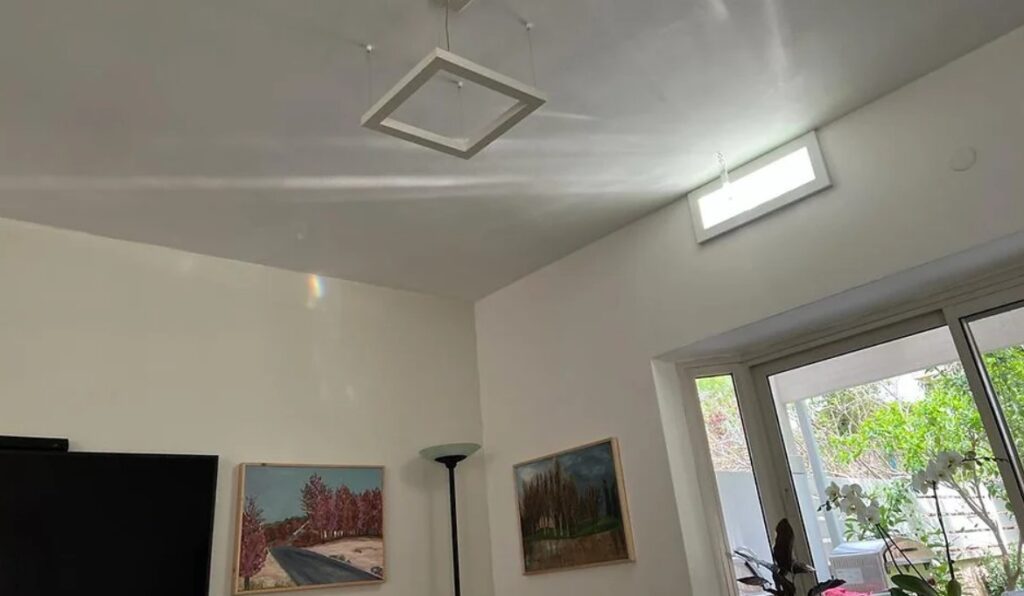An Israeli startup is on a mission to bring the benefit of natural sunlight indoors into our homes, workplaces and even hospitals.
Solight addresses the issue of lack of sunlight in indoor spaces by creating a solar lighting system that takes the natural light of the morning and afternoon hours and channels it into desired spaces, providing health benefits to those stuck inside and cutting exposure to artificial light.
The company was founded in 2012 by brothers Ofer and Dror Becker, who recognized the energy-saving advantages of sunlight but also realized that its health benefits shine brightest.
“We understood that energy saving is just the tip of the iceberg,” Ofer Becker tells NoCamels. “In monetary terms, all the experts agree that the wellness benefits are probably around 50 times more valuable than the energy savings.”
Solight’s patented technology is installed on rooftops. Its static arrangement of mirrors funnels the sunlight into rooms between the hours of 8am to 4pm, reducing the need for artificial lighting during that time.
The Tirat Carmel-based company says the wellness benefits derived from its solution are a boosted circadian rhythm, better concentration and even improved eye health.

The circadian rhythm is our natural body clock, which tells us when to sleep and when to wake up. According to research conducted by Stanford University, daily sunshine exposure helps the body regulate the production of cortisol and melatonin, improving our sleep patterns, positively affecting our physical health and even reducing depression.
“Once we get very little sunlight, which most of us do, this [body] clock goes haywire,” Ofer Becker explains.
“This has multiple effects on sleep quality and concentration on bone growth [especially] in elderly people. Sunlight has great benefits for recovery of patients in hospitals, usually speeding up recovery by 30% or more.”
But directing sunlight into a building does not mean that the company disregards the potentially harmful effects of the sun on the body.
Solight says sun safety is very important to it and thus the channeled light travels through filters removing all UV radiation, including dangerous UVB – a known cause of skin cancer. The filtering of light removes heat too, making it both safe and comfortable.
Sign up for our free weekly newsletter
Subscribe
The company is also researching methods to safely deliver Vitamin D – one of the main benefits of direct exposure to sunlight, but which the UV filtering removes for now.
“For Vitamin D, you actually need a certain wavelength of UVB radiation, which at the moment due to safety considerations, we omit,” Becker explains.
The company has installations in kindergartens and schools, he says, and did not want to have a situation in which parents were having to put sunscreen on their children to make sure that they did not get sunburn inside.
“So we are cutting all UV radiation and thus the system is completely safe,” he says.
In 2018, the European Union released the first European standard for natural light in buildings, also known as daylighting. The standard states that minimum natural lighting, quantified as 300 Lux (unit of light quality), must be available for building occupants to comfortably carry out daily tasks.
Solight currently offers three solutions for private, commercial, and industrial clients. The most popular solution is designed for medium-sized rooms of 12-15 sqm and delivers on average 7000 lumen (1 Lux=1 lumen per meter square) – more than 20 times the current EU recommendation.
In 2020, Solight received the EU Horizon Grant of €1.3million, allowing them to become market-ready. Today, you can find them installed in schools, hospitals, industrial, and commercial buildings across Israel.

Looking forward, the company wants to expand out of Israel, leveraging global partnerships and subsidiaries to enter markets such as the EU, Australia, Japan and China. They also want to tackle the issue of Vitamin D delivery which is found in the UVB rays that Solight is filtering out.
“Sunlight exposure is really becoming better understood,” Becker says.
“There’s a general acceptance that sunlight is just as crucial to human health as air quality, food and clean water.”
Related posts

Editors’ & Readers’ Choice: 10 Favorite NoCamels Articles

Forward Facing: What Does The Future Hold For Israeli High-Tech?

Impact Innovation: Israeli Startups That Could Shape Our Future




Facebook comments